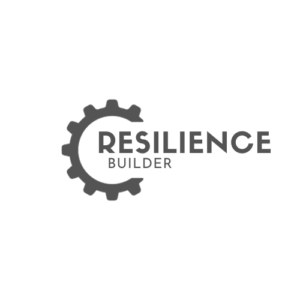Parks and recreational areas are essential for the well-being and quality of life in our communities. As the demand for outdoor spaces and leisure activities continues to grow, artificial intelligence (AI) is emerging as a valuable tool to optimize the management and utilization of these areas. In this post, we will explore how AI is enhancing recreation by optimizing parks and recreational activities.
The Importance of Parks and Recreation
Parks and recreational areas offer numerous benefits to individuals and communities, including:
Physical and Mental Health: Outdoor activities in parks promote physical fitness, reduce stress, and improve mental health.
Social Engagement: Parks serve as gathering places, fostering community connections and social interactions.
Environmental Conservation: Parks and green spaces contribute to urban biodiversity, air quality, and climate resilience.
Economic Value: Well-maintained parks can boost property values and stimulate local economies through tourism and recreational services.
Challenges in Park Management
Despite their importance, managing parks efficiently and ensuring a positive visitor experience can be challenging. Some common challenges include:
Overcrowding: Popular parks may become overcrowded, leading to safety concerns and environmental degradation.
Maintenance: Maintaining parks, trails, and facilities can be resource-intensive, and delays in maintenance can affect the visitor experience.
Safety and Security: Ensuring the safety of park visitors is crucial, and addressing security issues is an ongoing concern.
Environmental Impact: Managing the environmental impact of park visitors, such as waste and wildlife disturbance, requires careful planning.
AI Solutions for Park Optimization
AI is increasingly being utilized to address these challenges and enhance the recreational experience. Here’s how AI is making a difference:
Visitor Management:
AI algorithms can analyze historical data and real-time information to predict peak visitation times, helping park managers allocate resources efficiently and reduce overcrowding.
Maintenance Planning:
AI-driven predictive maintenance systems monitor park assets, such as playgrounds and restrooms, to schedule repairs and replacements proactively, minimizing downtime.
Safety Monitoring:
AI-powered surveillance systems can detect unusual behavior or incidents, allowing for rapid responses to ensure visitor safety.
Environmental Monitoring:
AI sensors and cameras can monitor wildlife and habitat conditions, helping park authorities protect ecosystems from harm.
Traffic Management:
AI-based traffic management systems can optimize parking and transportation, reducing congestion and environmental impact.
Personalized Experiences:
AI-driven apps and digital platforms can offer personalized recommendations for park activities and events based on user preferences.
Benefits of AI-Enhanced Parks and Recreation
The integration of AI in parks and recreational management offers several advantages:
Improved Visitor Experience: AI helps reduce overcrowding, enhance safety, and ensure well-maintained facilities, resulting in a more enjoyable experience for park-goers.
Efficient Resource Allocation: Park managers can optimize resource allocation, reducing operational costs and environmental impact.
Conservation Efforts: AI contributes to the protection of natural habitats and wildlife within recreational areas.
Data-Driven Decision-Making: AI provides valuable insights and data for informed decision-making and long-term planning.
Challenges and Ethical Considerations
As with any technology, the use of AI in parks and recreation also comes with challenges and ethical considerations:
Privacy Concerns: Surveillance and data collection in recreational areas should respect visitor privacy.
Equity and Accessibility: Ensuring that AI-enhanced parks are accessible to all communities and do not exacerbate existing inequalities is crucial.
Environmental Impact: The carbon footprint of AI infrastructure and devices should be considered in efforts to reduce environmental harm.
AI is revolutionizing the way we manage and enjoy parks and recreational areas. By optimizing visitor experiences, resource allocation, safety, and environmental conservation efforts, AI contributes to more sustainable and enjoyable recreational spaces for everyone. As we continue to harness the power of AI, we can look forward to even more efficient, accessible, and enjoyable parks and recreational activities in the future.



